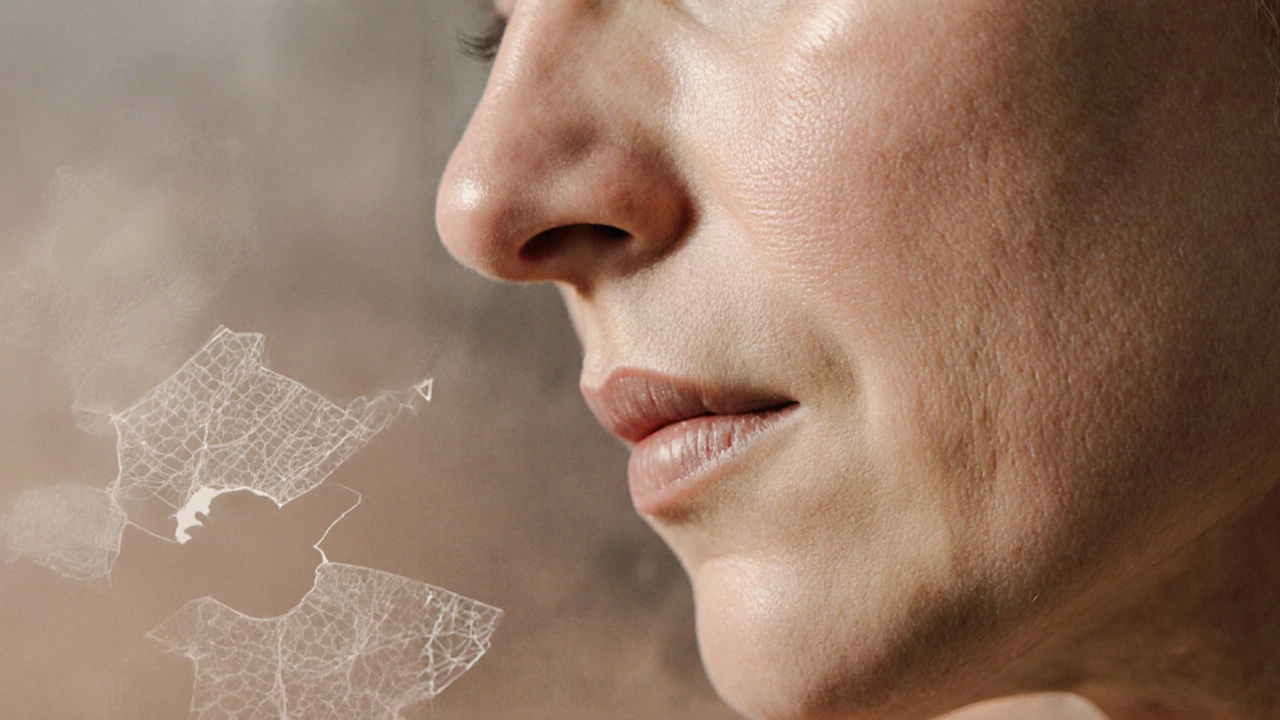Collagen Loss: What It Is and Why It Matters
When talking about Collagen loss, the gradual decline of collagen fibers in skin, joints, and connective tissue that leads to wrinkles, sagging and weaker joints. Also known as collagen depletion, it affects how firm and elastic our skin feels and how quickly we show visible signs of aging. In simple terms, collagen loss means the body isn’t producing enough of the protein that holds skin cells together, so the skin starts to look dull and less bouncy. This process and , making it a key target for anyone interested in anti‑aging strategies.
One of the biggest related players is Collagen, the most abundant protein in the body that forms a scaffold for skin, bones, tendons and ligaments. Without enough collagen, skin elasticity, the ability of skin to stretch and snap back to its original shape drops, leading to fine lines and deeper wrinkles. Another crucial factor is anti‑aging, a broad set of habits and products aimed at slowing or reversing the visible effects of age. Anti‑aging approaches often by protecting skin from UV damage, supporting antioxidant levels, and encouraging natural collagen production.
Practical Ways to Slow Down Collagen Loss
Below are the most effective levers you can pull to keep collagen levels healthier for longer. First, nutrition matters: foods rich in vitamin C (like citrus, berries and bell peppers) act as a co‑factor for collagen synthesis, while protein‑dense sources such as chicken, fish and legumes provide the amino acids needed to build new collagen fibers. Second, consider collagen supplements, hydrolyzed collagen powders or pills that deliver small peptide fragments your body can reassemble into fresh collagen. Clinical trials show that regular supplementation can modestly improve skin hydration and reduce wrinkle depth.
Third, protect what you have. Daily broad‑spectrum sunscreen blocks UV‑induced collagen breakdown, and antioxidants like green tea, niacinamide and retinol help neutralize free radicals that otherwise degrade existing collagen. Fourth, lifestyle choices count: quit smoking, limit excessive alcohol, and get enough sleep—these habits reduce inflammatory stress that speeds up collagen loss. Finally, incorporate gentle facial massage or microneedling, both of which stimulate fibroblasts to produce more collagen over time.
Our collection of articles below dives deeper into each of these topics. Whether you want to explore the best anti‑aging drinks, learn which organic skincare lines support mature skin, or understand the science behind collagen‑boosting ingredients, you’ll find actionable insights that match your level of interest. Ready to see how these strategies fit into a real‑world routine? Keep reading to discover the full range of tips and product recommendations we’ve gathered for you.


